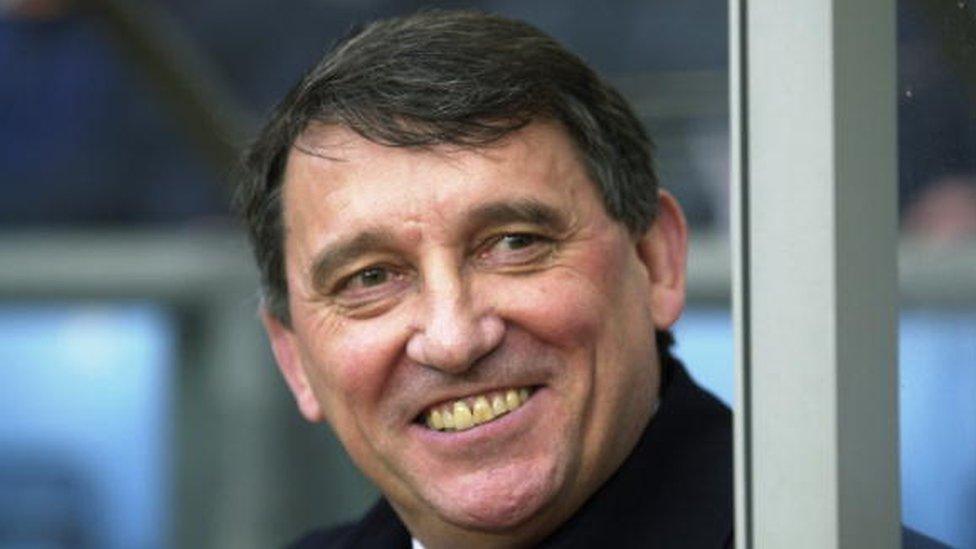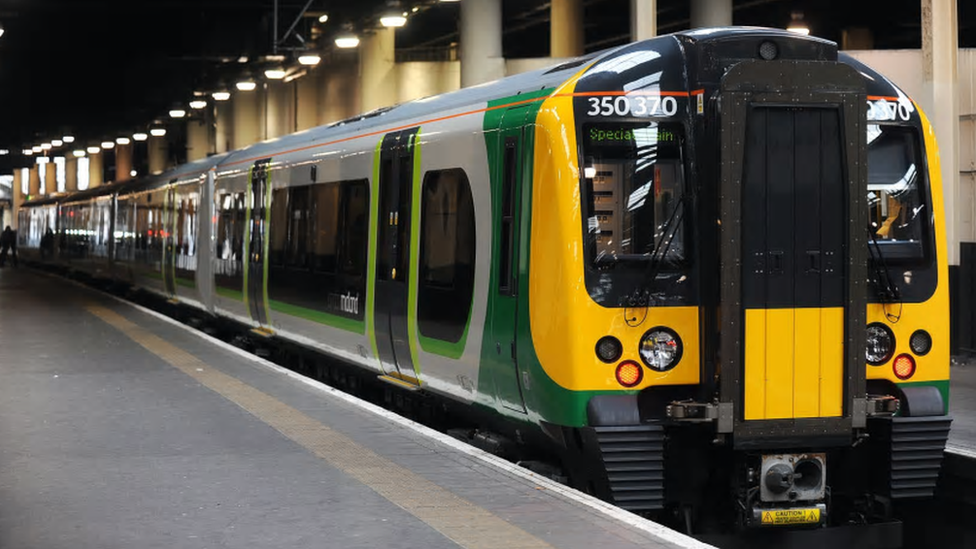Train named after England boss Graham Taylor
- Published

Graham Taylor managed teams including Watford, Aston Villa and Wolves
A train which passes through a number of stations associated with former England manager Graham Taylor is to be named after him.
The West Coast service will call at Watford Junction, Aston, Wolverhampton and Wembley Central.
London Midland is to re-christen the Class 350 model, to be known as Graham Taylor OBE, on 2 June.
The company said it was in "recognition of a man who made such a lasting mark on the sport across the country".
'Influential role'
Head of West Coast services, Steve Helfet, said: "Graham played such an influential role at football clubs across the length and breadth of the country, not least in Watford.
"We wanted to do something special for the local community and dedicate one of our trains to his memory.
"We hope that passengers travelling on this train in the future will take a few moments to remember Graham, a true football hero."

A London Midland Class 350 train will be named Graham Taylor OBE
Scott Duxbury, the chairman of Watford Football club, where Taylor made such a huge impact, said: "London Midland's respectful suggestion about Graham was put to his family for approval and we're delighted they accepted this offer.
"Alongside other planned tributes, this gesture is a mark of just how widely Graham's work and warm personality were appreciated across our town."
A ceremony on will take place on platform 10 at Watford Junction station on 2 June.

Graham Taylor's managerial career
Taylor led Lincoln City to the old Fourth Division title in 1975-76 before joining Watford
In his first spell as Hornets boss between 1977 and 1987, Taylor took the club from the Fourth Division to the top flight and they finished second to Liverpool in 1983. He also got them to the 1984 FA Cup final.
Appointed by Villa in 1987, he lead them to promotion into the top tier and took them to second in 1990
He became England boss in 1990 but resigned in 1993 after the team failed to qualify for the 1994 World Cup
Taylor returned to club management with a brief stint at Wolves before again taking over at Watford, leading them to two promotions in as many years as he guided them back into English football's top flight
He returned to manage Villa in 2002 but retired a year later.
